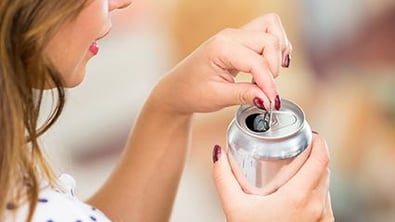WHO Experts Take Another Look at Aspartame’s Safety

FRIDAY, June 30, 2023 (HealthDay News) -- The artificial sweetener aspartame is in the hot seat once more. Two separate committees made up of health experts from around the world will soon offer advice on consuming aspartame, a popular sugar substitute that is added to sodas, cough drops, desserts, and gum.
The World Health Organization's International Agency for Research on Cancer (IARC) is analyzing whether the ingredient is a carcinogen. Meanwhile, the WHO's Joint Expert Committee on Food Additives will offer guidance on an acceptable daily intake of aspartame. Both are expected to issue their reports on July 14, according to leaked WHO documents, CNN reported.
Aspartame continues to have approval from the U.S. Food and Drug Administration as a safe product. Not only that, but U.S. health officials are concerned that doing simultaneous, potentially conflicting, reviews will "seriously undermine" confidence in the scientific process and "inflame the current climate of public skepticism about the validity of science and scientific process," according to a letter sent to the WHO last summer by the U.S. Department of Health and Human Services.
The WHO's cancer research committee considers a broad range of items carcinogens, including mobile devices, Qi Sun, M.D., an associate professor of nutrition and epidemiology at Harvard's T.H. Chan School of Public Health, told CNN. For aspartame to be ruled a carcinogen "boils down to what kind of evidence we have," he added. "I feel the evidence is pretty sparse either way to say 'aspartame is cancerous' or to suggest that aspartame is not as carcinogenic."
Both the Calorie Control Council, a trade group for the manufacturers of artificial sweeteners, and the International Council of Beverages Association (ICBA) took issue with the news.
"IARC is not a regulatory agency, ingredient expert, or food safety authority, their sole focus is to find substances that could cause cancer, and they have classified things like aloe vera, low frequency magnetic fields, and pickled vegetables as possibly causing cancer," Calorie Control Council President Robert Rankin said in a statement. "Consumers want context and that is what's missing from these misleading claims."
ICBA Executive Director Kate Loatman voiced similar concerns. "While it appears IARC is now prepared to concede that aspartame presents no more of a hazard to consumers than using aloe vera, public health authorities should be deeply concerned that this leaked opinion contradicts decades of high-quality scientific evidence," she said in a statement. "We remain confident in the safety of aspartame, given the overwhelming weight of scientific evidence and positive safety determinations by food safety authorities in more than 90 countries around the world."
Related Posts
Pandemic’s Two-Year Global Death Toll May Be Close to 15 Million
WEDNESDAY, Dec. 14, 2022 (HealthDay News) -- Almost 15 million people likely...
Odds of Prior Migraine Up for Patients With Neovascular AMD
MONDAY, Feb. 7, 2022 (HealthDay News) -- Individuals with neovascular...
Understanding How COVID Can Trigger Loss of Smell
THURSDAY, May 5, 2022 (HealthDay News) -- It has happened to millions during the...
AHA News: Bronx-Based Program Is Teaching Coding and Web Development – And Changing Lives
MONDAY, Oct. 25, 2021 (American Heart Association News) -- Nearly two years...
